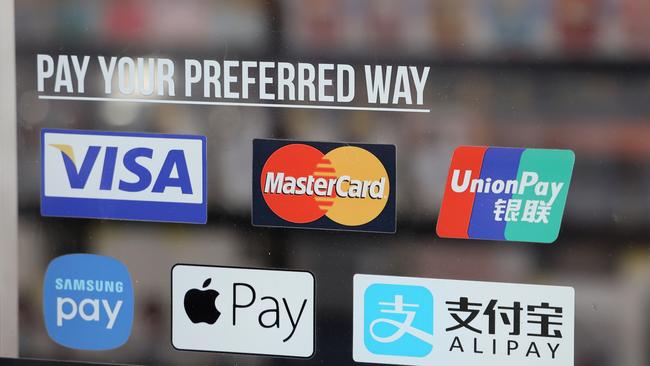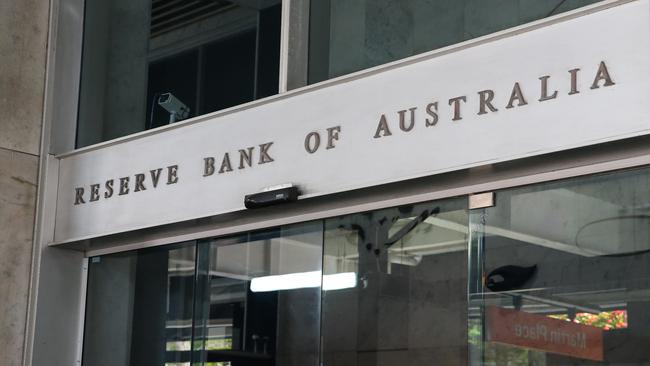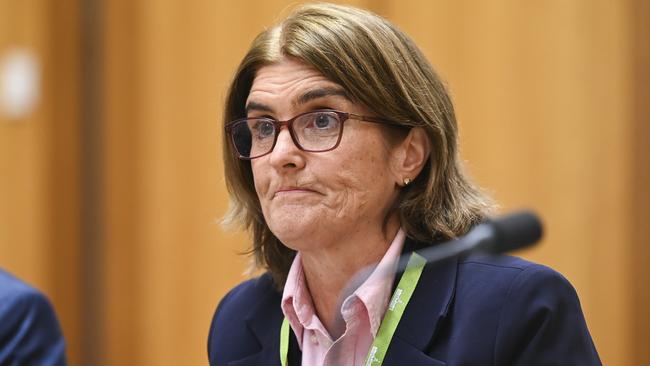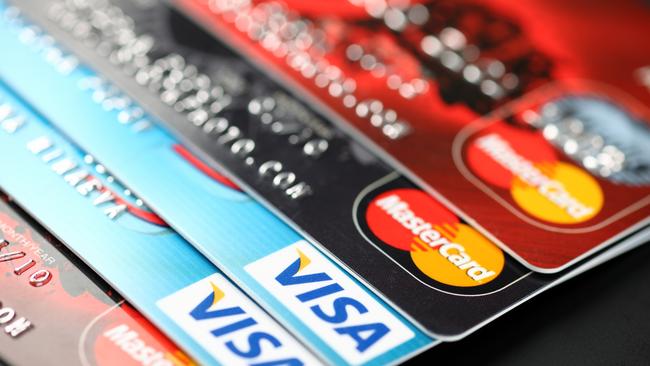Banks rip of $1bn-plus a year from Aussies with excessive transaction fees
Millions of Australians are being ripped off from their everyday purchases because of a sneaky tactic banks are doing every time you use your credit card.
Business
Don't miss out on the headlines from Business. Followed categories will be added to My News.
Coffees, eggs on toast and other everyday purchases are collectively costing Australians $1bn a year more than they should due to sky-high fees charged by banks and payment terminal companies, experts say.
The widespread transaction fee ripoffs have led Reserve Bank governor Michelle Bullock to warn the payments industry that regulation is on the way to force it to cut processing costs and pass the savings on to merchants.
The competition regulator has also taken legal action against credit card giant MasterCard, accusing it of deliberately pumping up costs by getting big retailers to use its network instead of cheaper processing methods.

Brad Kelly, the managing director of consulting company Payment Services, said companies such as Square, run by Twitter founder Jack Dorsey, were enjoying mark-ups of up to 700 per cent on fees charged for payments made by eftpos.
Banks were also enjoying hefty profits due to the gap between the wholesale amount charged for eftpos transactions, which Mr Kelly said made up about 75 per cent of card purchases, and the fees they charge merchants such as shops, restaurants, cafes and pubs.
“Merchant acquirers – banks – are gouging merchants who are then passing costs on to consumers,” Mr Kelly said.
He said big merchants such as department store chains could get a discount but small to medium size companies lacked power to negotiate a better price.
RBA data shows the average cost of processing an eftpos transaction is 0.28 per cent of the purchase price – or, for a $100 purchase, 28c.
However, Square charges a flat rate of 1.6 per cent of purchase price, or $1.60 on a $100 buy.

Mr Kelly said merchant acquirers such as the banks, Square and Tyro were using cheap eftpos traffic to cross subsidise more expensive credit and charge card transactions.
Visa and MasterCard transactions cost an average of 0.84 per cent while American Express costs 1.38 per cent and Diners Card a whopping 2.11 per cent, RBA data shows.
A Square spokesperson said the company’s single rate kept things simple for merchants and allowed it to offer a range of other services to them for no extra cost.
“They’re not charged extra fees for account activation, early termination, interchange, chargebacks, cash payments, inactivity, or PCI compliance,” the spokesperson said.

RBA data compiled by Qi Insights shows that Australians make about $556bn worth of purchases a year using debit cards, and $377m a year using credit cards. Just $104bn a year is withdrawn from ATMS in cash.
To reduce processing costs, Ms Bullock wants industry to adopt what’s called “least cost routing”, or LCR, where transactions are automatically allocated to the cheapest processing method possible.
Mr Kelly said LCR was currently used by 54 per cent of merchants.
Ms Bullock “wants that at 80 per cent or above – she’s going to mandate that in the middle of the year,” he said.
“If LCR was being implemented properly across the network the savings to merchants would be more than $1bn a year.”
Qi Insights managing director Peter Drennan said there was no incentive for change if acquirers charged a flat rate.

“Most consumers wouldn’t understand the idea of what payment routes they’re using and how it’s different,” he said.
Ms Bullock’s RBA is the primary regulator of the payments system, although the Australian Competition and Consumer Commission monitors the fees individual merchants charge.
It took Federal Court action against MasterCard in 2022, alleging the credit card group abused its market power in 2017 by signing up more than major retailers to use its network to process sales instead of using LCR. MasterCard denies doing anything wrong.
The case is due to come to trial in March but is shrouded in secrecy because the judge hearing it, Justice Michael Wigney, has made at least nine orders making information – including which retailers allegedly signed up to the deal – confidential.
HOW YOU CAN SAVE MONEY
The fees charged by payment platforms are mostly out of your control – but there’s one thing you can do that might help keep costs down.
But it’s a bit complicated and only works on transactions in Australia.
You’ll need a debit card with an eftpos logo and a smart device like a phone or watch. Then you’ll need to load your card into a digital wallet, such as Apple Pay or Google Wallet, on the device.
Before you tap, set the wallet up to use eftpos as your preferred payment method.eftpos is the cheapest payment method in Australia, costing an average 0.28 per cent of purchase price.
A debit transaction routed through Visa or MasterCard costs around 40 per cent more and using credit costs almost three times as much, according to RBA statistics.




